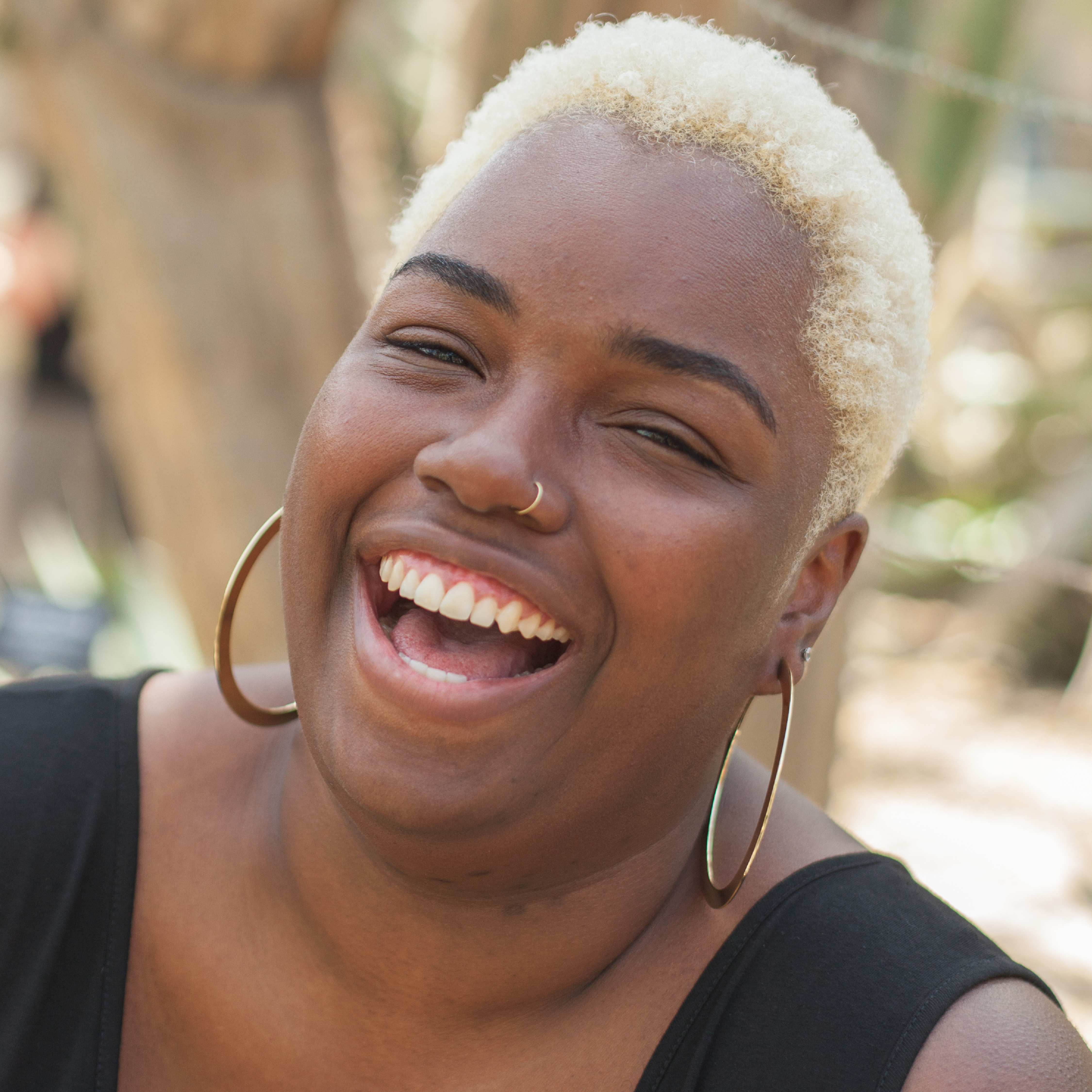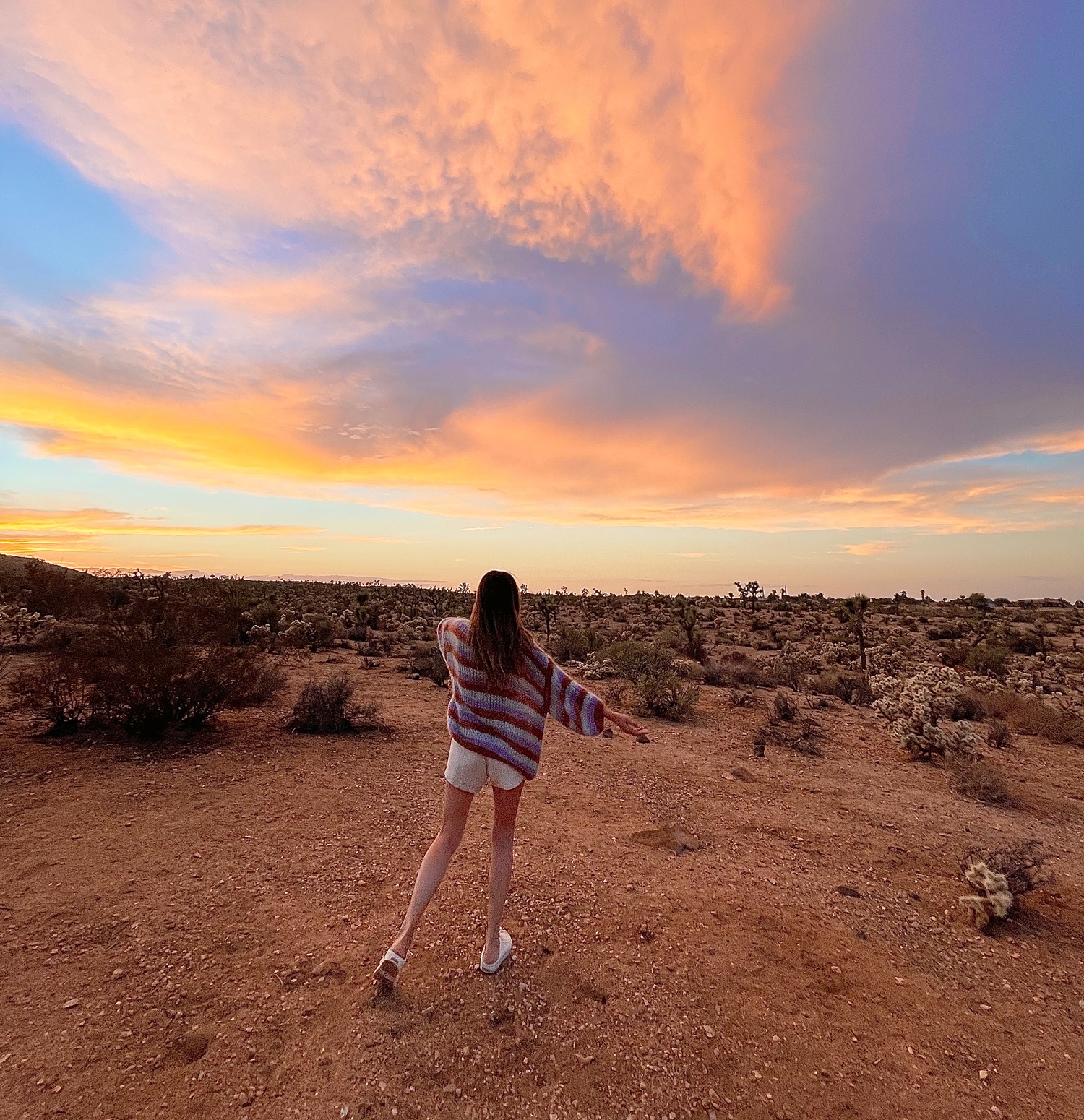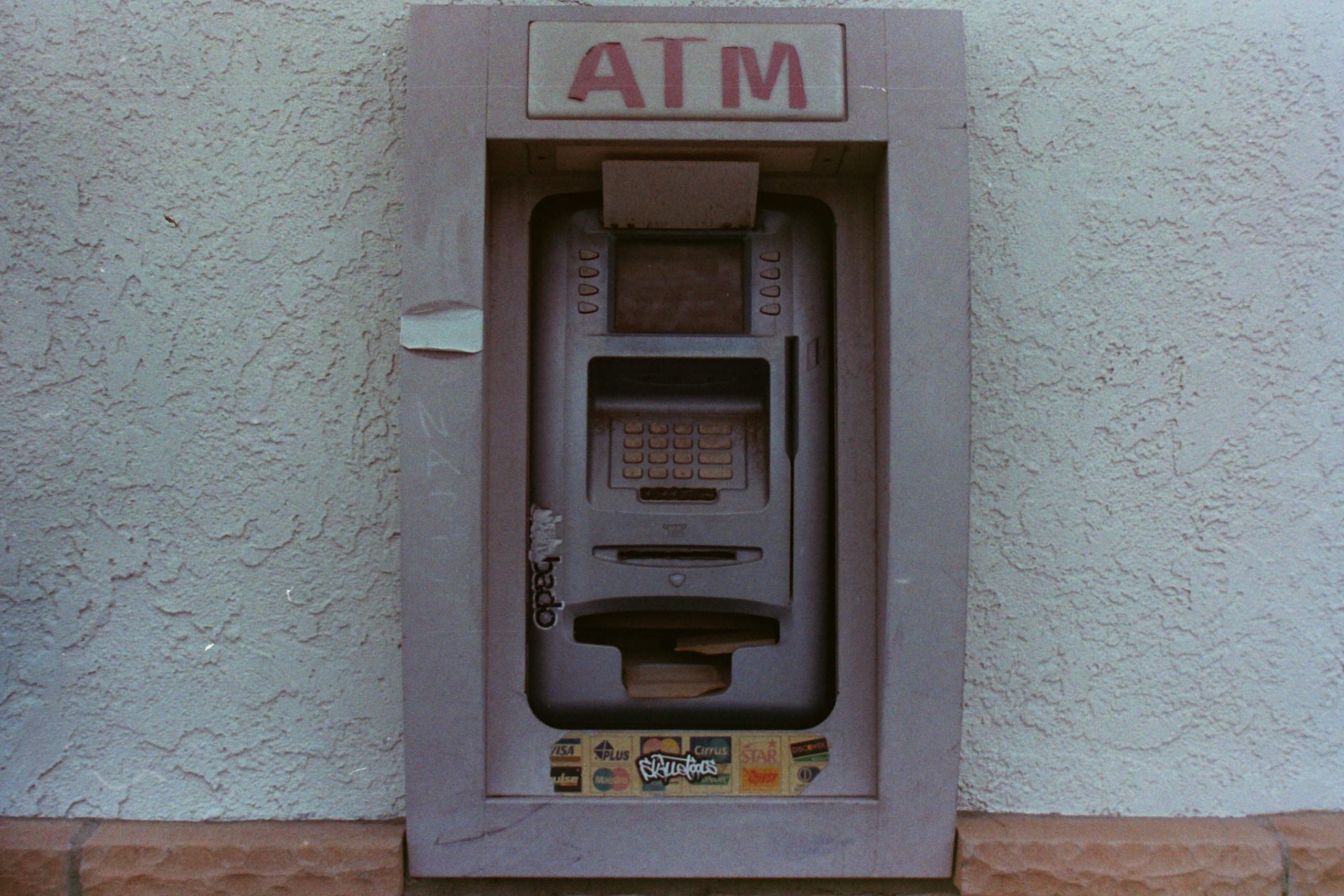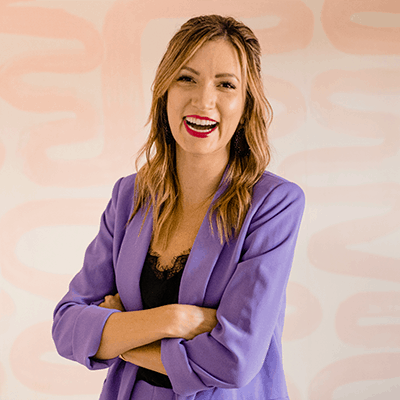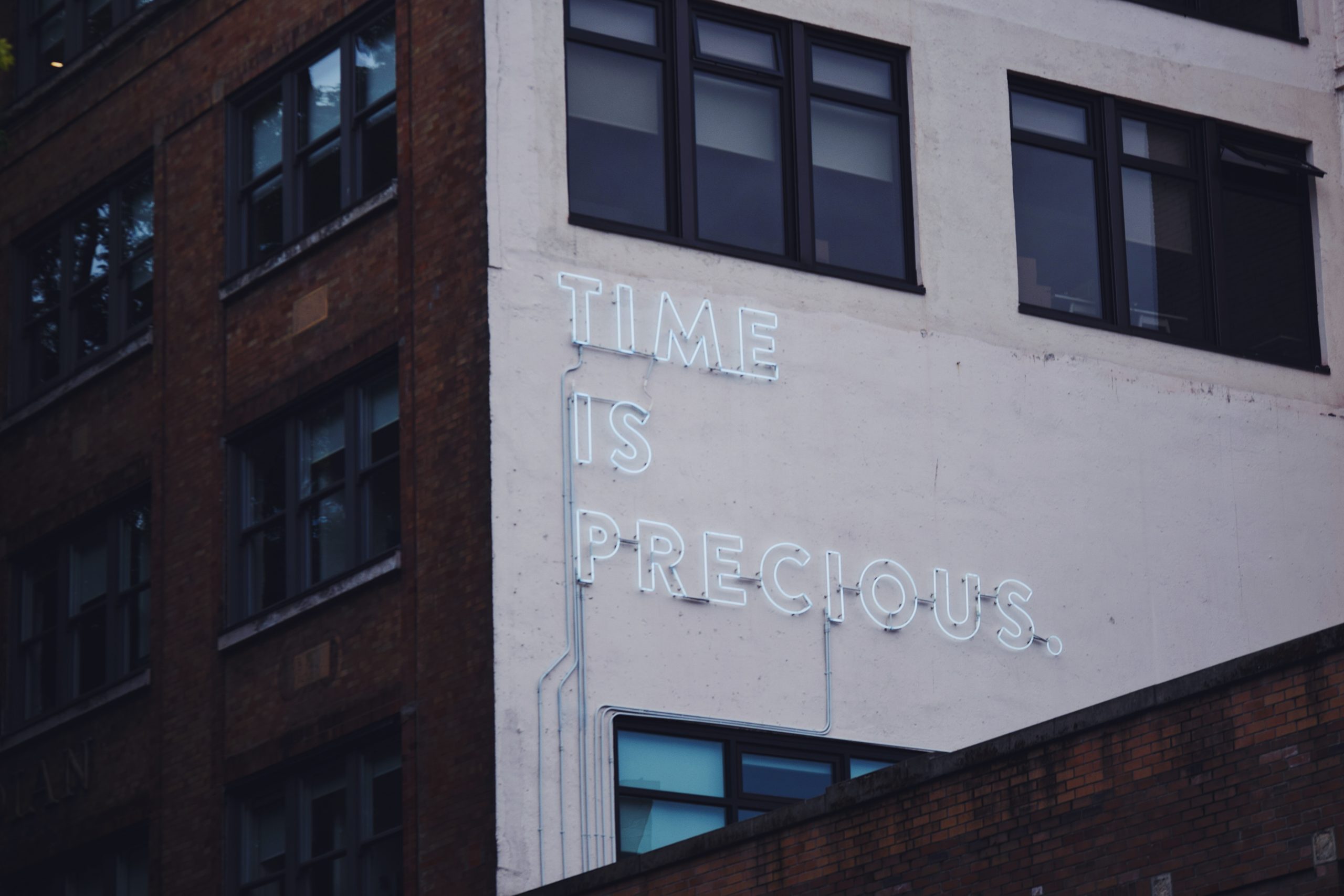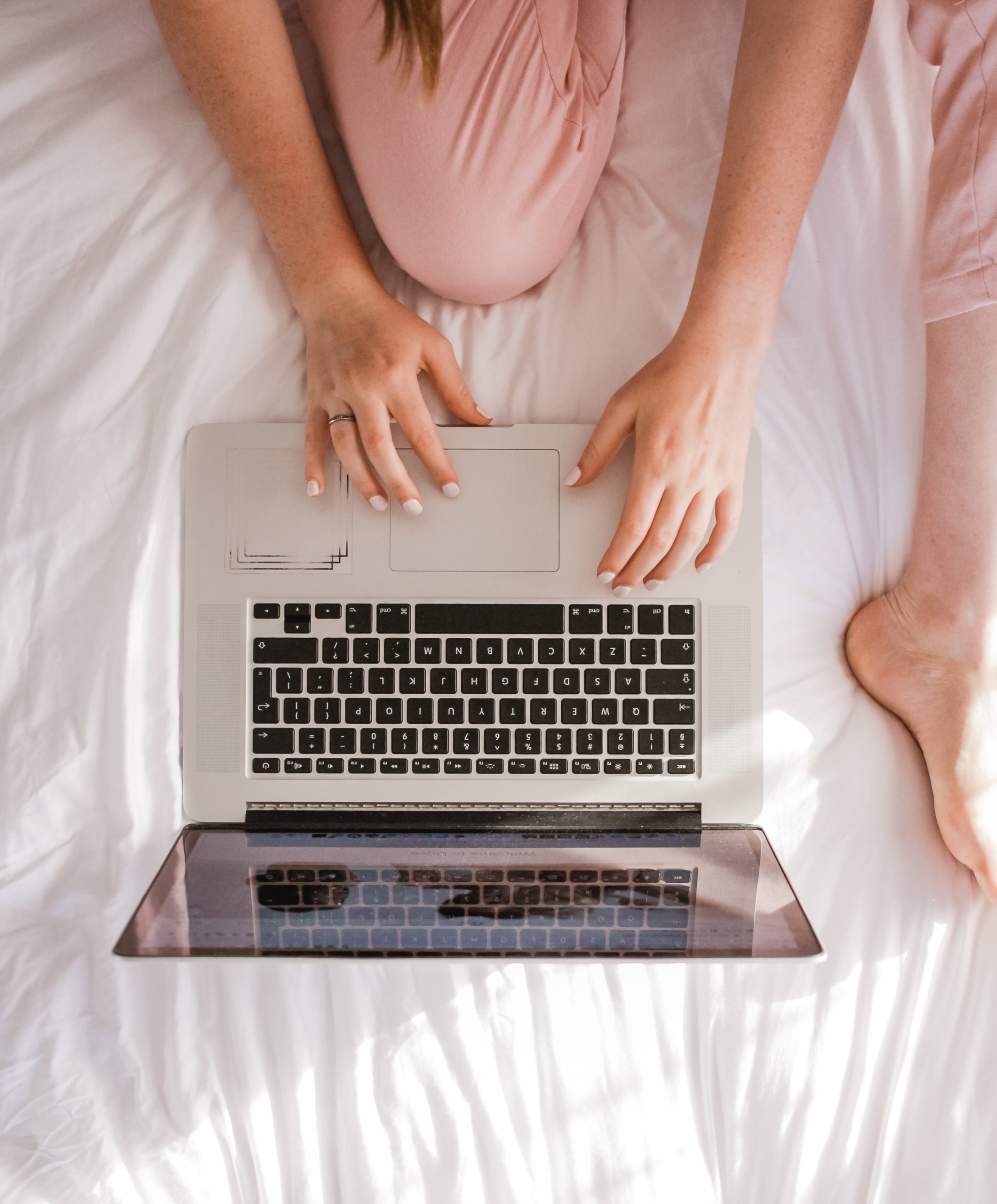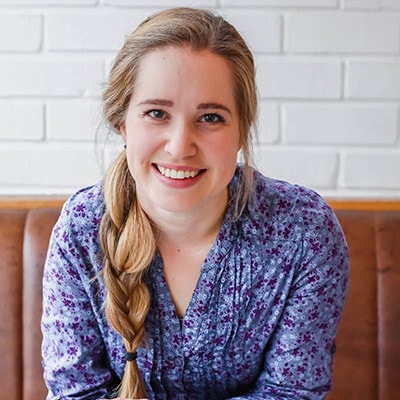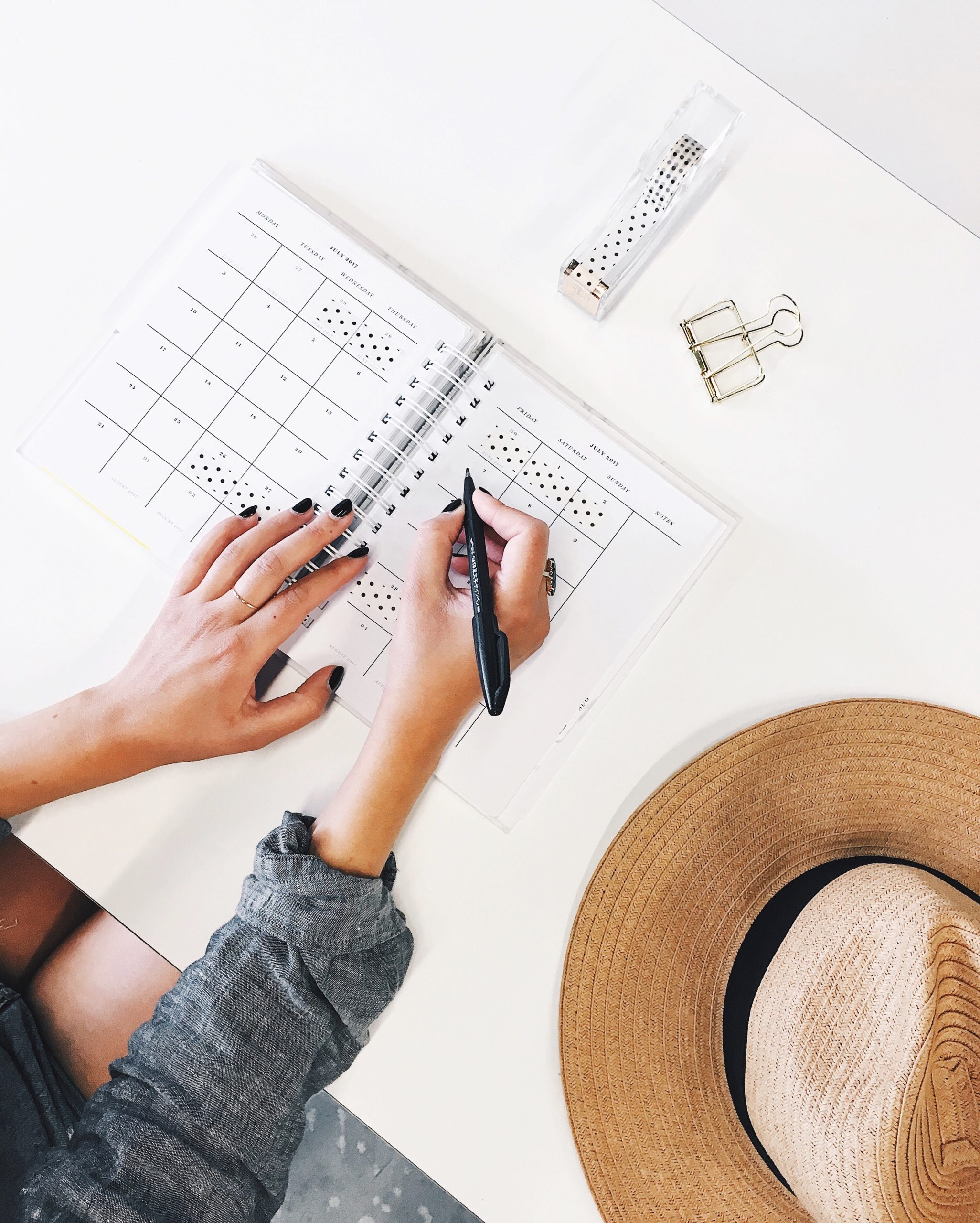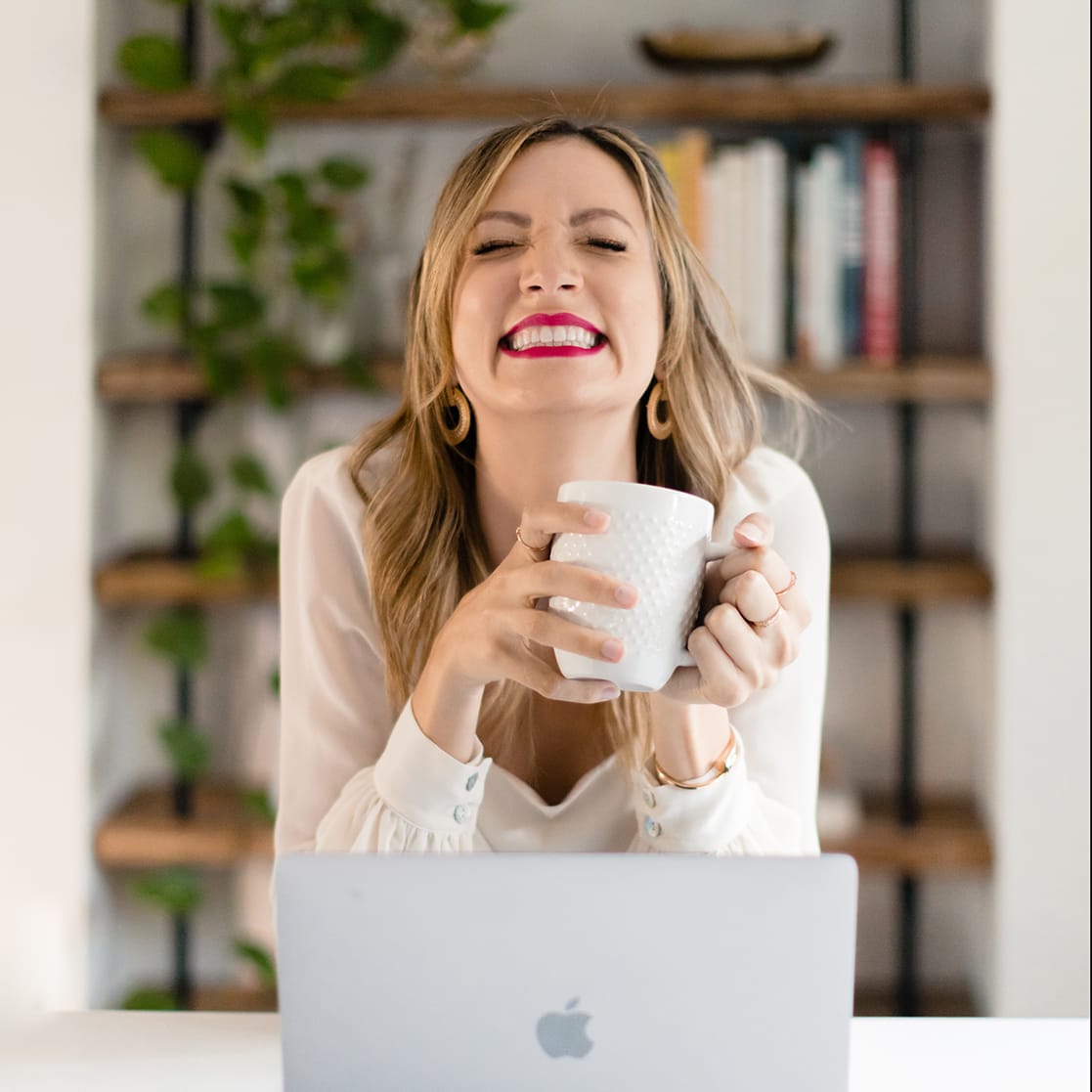Tune In to the Episode: Apple Podcasts | Spotify | Stitcher
We all have incredible power within us to create change. If you’re ready to learn how to embrace the power you have, today’s episode of Limitless Life™ is for you.
If we really want to create change in this world, we have to get down to the nitty gritty of things – we have to start by looking at ourselves and the roles we play in what we’re trying to change.
This week, I’m so excited to dive deeper into that perspective with you in this conversation with Andréa Ranae.
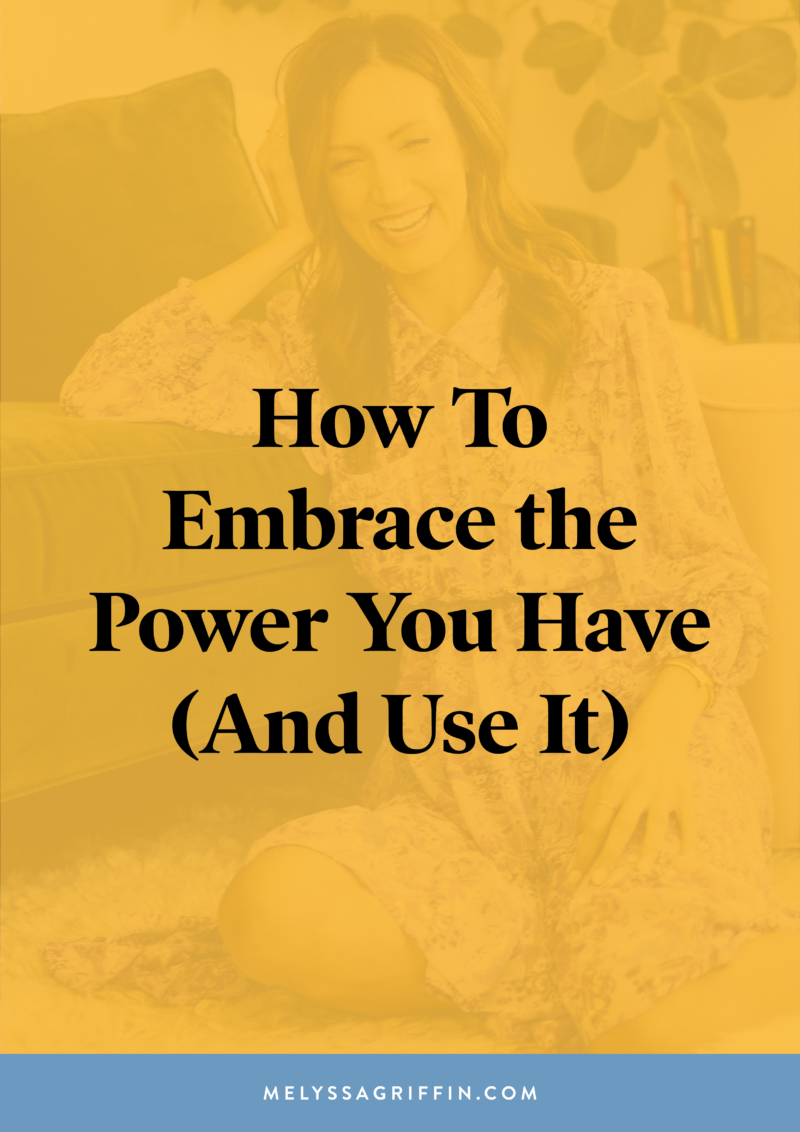
Andréa is a teacher, coach, and founder of Whole / Self Liberation — an online school offering education and resources for people who are ready to make a difference in this world.
She has such a powerful way of teaching — especially when it comes to her perspective on liberation and wholeness in both social justice and in creating impact in general.
And I know that what Andréa shares in this episode will get you thinking about your own power and the impact you’re already creating, whether you realize it or not.
So pull out a notebook and pen — you’re going to want to take notes 😉
Let’s dive in.
Listen to the episode below:
This episode discusses topics like…
- Why each of us needs to make “inside out” impact
- Why knowing what we do want is key for creating different ways of being in the world
- Where to start if you’re wondering how to enact change
- Why looking inward is key to any change you want to create
- How to stop wasting energy on fear of making a mistake while doing the work and channel that energy elsewhere
- Why sustainability is so important in activism
After dozens of episodes and tons of inspiring conversations, the Limitless Life™ podcast is full of incredible examples of impactful people choosing to leave the status quo behind and step into their most limitless self. As a “thank you” for being part of this community, I’ve put together 10 of the BEST lessons guests have shared in a handy dandy guide. Click the image below to download yours for free.
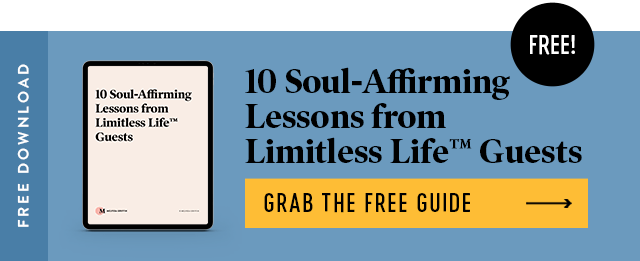
Links from the episode:
Discover Your Money Magnetism Archetype – Take the Quiz!
Register for the free, at-home Limitless Entrepreneur retreat here!
Follow me (Melyssa Griffin) on Instagram for honest conversations about business, mindset, and my life.
Follow the Limitless Life™ Podcast on Instagram for new episode releases and wisdom on how to live a life with no limits.
Learn about the Bold Abundance Mastermind.
Follow Andréa on Instagram: www.instagram.com/andrearanaej
Get the free Work Your Values workbook: www.andrearanae.com/values
How to subscribe + review:
Want to be the first to know when new episodes are released?
Also, podcast reviews are pretty darn important to the iTunes algorithm and the more reviews we receive, the more likely we’ll be able to get this podcast and message in front of more people. I’d be extremely grateful if you left a review right here letting me know your favorite part of this episode.
Share on social?
Did this episode help you expand what’s possible for your life or business? Do you think your social media followers may learn something, too? I’d be forever grateful if you shared it on social media. 🙂 If you do, tag @melyssa_griffin and @limitlesslifepodcast so I can repost you! Woohoo!
I’d love to hear your thoughts on this episode. What impact do you dream of making in the world? What role are you playing in the systems you want to change?
Thank you SO much for being here, sweet friend. I’m honored to walk this journey with you. See you in the next episode!
xoxo
Melyssa
Andréa Ranae
Hello!
Melyssa
Hello. How are you doing today?
Andréa Ranae
Hi. I’m good. How are you?
Melyssa
I’m doing well, too. Yeah. Been a good one. Hey, can you remind me where you’re based out of?
Andréa Ranae
I live in Tulsa. I just moved here. Yeah, I used to live in Chicago.
Melyssa
Oh, okay, cool. How’s the new digs going?
Andréa Ranae
It’s going well. I feel good about this move still.
Melyssa
I love the art that’s behind you. That’s beautiful,
Andréa Ranae
Thank you. I’m excited to finally get to connect. I feel like I know you like to sign up for coaching is activism A while ago, and you just been around, but we haven’t ever talked before. And I know. Like I’ve known about your work before you signed up for coaching is activism.
Melyssa
Yeah, I’m excited to chat with you. I just like, I don’t know if fangirl is the right word. But I love so deeply love and appreciate the way that you show up in the world and the way that you teach. And so I just, I’m really grateful for you and excited to dig into more of your philosophy and just your approach to so much more that you contribute to the world.
Andréa Ranae
Yay, I’m excited to dive into all that.
Melyssa
Yes. Okay. Well, any questions?
Andréa Ranae
Is there anything in particular you’re hoping that the listeners get out of this?
Melyssa
There are two things that… and I know this is part of even the name of the school that you’re creating, but two words that really resonate with me about how you show up and those are liberation and wholeness. And so I think distilling those into people, both in terms of like social justice work, and also in terms of how they want to make an impact in the world. how those both require wholeness and liberation, and, and what that means, how they can apply that to their life.
Andréa Ranae
Cool. Yay. And then when do you think this will go live?
Melyssa
Probably sometime next month, I would say in the next four weeks or so. Okay. We’ll send you an email and give you an update though.
Melyssa
Feel free to ask away.
Andréa Ranae
I had an idea about something. Do you like publish the video portion of this? Or is it just audio?
Melyssa
We don’t at the moment, publish the video.
Andréa Ranae
Okay.
Melyssa
But if there’s something that you wanted to show, and we actually do that part, yeah.
Andréa Ranae
I was thinking about the possibility of publishing the video on my YouTube channel. later on after it’s already been published and everything but…
Melyssa
I love that idea. I’d be happy to give you the video.
Andréa Ranae
I’d love that.
Melyssa
Awesome. Yay. So excited to chat with you. And let’s see if I have anything. Is there anything on your end, by the way that you would love to talk about?
Andréa Ranae
Take me wherever you want to take me.
Melyssa
Yes, I love that intention. And that is largely the intention that I have for the podcast in general is like, we can let this be a free flowing conversation and just see where the wind blows us.
Andréa Ranae
Those are my favorite.
Melyssa
Good. Yay. Excited. All right, well, let’s just dive in. Sound good?
Andréa Ranae
Yep.
Melyssa
Okay. So something that draws me to your work and the way that you show up in the world and how you teach and lead is, I feel like it’s different than the way that a lot of other people teach not even just in the social justice realm, but just in general like coming from this place of wholeness and liberation. And almost I think of it as like inside out impact. Can you speak a little bit more to your approach for anybody who’s new to your work and how you operate in the world?
Andréa Ranae
So in part, my answer is very much informed by how other people have, like, reflected me back to me. Where I’ve always gotten a lot of like, you’re so warm, and you’re so like, like, there’s like a gentle, like fierceness. And like, I think, for me, at the core of everything that I, like, put my time and energy into in terms of work comes down to like my regard for humanity. and wanting to create a world that regards each of our humanities no matter what we do, what we feel what we want, or what we believe, or like, what we look like, but that we’re all human. And that’s all like, so, so precious, and divine, and sacred, and all of these things and really wanting. I think just personally, like I want to live a life that regards my own humanity and the, the, the humanity of the people in my world, the people that come in contact with. So I think that’s what I know, that’s at least one thing that makes my work feel different for a lot of people. And how I see the difference is, often when we’re doing work that is trying to change the world. There’s this content, or like, disregard, or like wanting to push away the things that we don’t want and wanting to like, eradicate or like, demolish the thing that we don’t like, and I don’t have that. Like, I don’t have a want to keep it. But I don’t have a hatred or contempt or a like, disregard for it either. It’s just, okay, white supremacy, it is a thing, and it’s not something that I would like to engage in. And I actively try to uproot within myself, and support others in doing that. But I don’t need to hate it. In order to do that. I can still be with it. It’s a decision that people make sometimes. And okay.
Melyssa
Right. And like, where do we go from here? Yeah, and just going back to what you said, of the regard for our humanity, I feel like the way that you come from teaching is seeing each person has their own individual of how they bring, like you say, your wholeness, like, all of their experiences and perspectives. And that is all okay, there’s no binary, good, bad. It’s just this, this whole perspective that we all bring, and how to use that to create impact. And like you were saying, I even wrote down something that you posted on Instagram about like, you’re not anti anything, like a lot of us come into at least social justice work being anti racism, anti capitalism, anti colonialism and, and coming from that place of anti doesn’t give us the opportunity to envision what we actually want. Because we’re always thinking about, well, here’s what I know, I don’t want. But your philosophy seems so much more rooted in Well, that’s cool, and that that’s valid, but at the same time, what do you actually want? And then what are you doing to create that?
Andréa Ranae
Yeah, yeah, I think so. People will see if they follow me, that I will use like, anti racism or anti oppression or anti capitalism or whatever. And that’s mostly coming from a place of wanting to connect with the person that I’m I’m wanting to serve and wanting to be in community with is that I know that these are like, these are starting to become more and more buzzwords that people are like, Yes, I mean, it’s a capitalist, or Yes, I’m anti racist. And I’m really identifying with that. And like you said, like I have, sometimes it is necessary to get clear on what we don’t want in order to figure out what we do, but we got to do that work of figuring out what is it that we do because we can’t, like, how do you not do something? Like what what do you do in place of not doing it? And that’s what we need to look at is like, what do we if we don’t want this form of oppression or if we don’t want it This way of being or this law or this policy or whatever, what do we want? Like what else other than that? Do we want and not to, like counter act necessarily, but just okay, we want to dismantle white supremacy. Okay, what, what does a world where we’re not even considering white supremacy look like? Not where we’re fighting it and pushing against it and resisting against it, but where we don’t even have to, like it’s a non option, white supremacy, what does that look like? And what decisions are we making to create that world? That’s like, the only way we’re actually gonna change anything, because otherwise we’re just always going to be pushing against what we don’t want.
Melyssa
So yes, yes. And from your humanistic approach, it almost seems to like, once you understand what you do want, then and like you’re saying, imagining a world where white supremacy isn’t even a thing we would even be thinking of to talk about. And it’s like, how can you start to create that way of being within yourself? And then from that way of being inside using that to facilitate what you end up creating on the outside? What kind of change you end up making?
Andréa Ranae
Yeah, yeah. And that’s that these two, that you reflected as well that like, often, when we’re talking about creating change in the world, or creating change in our communities, or whatever, we go, Well, this system is corrupt, or this way of, like how we do like nonprofits, or how we like the social, economic, environmental, like we go outside and say, these things out here needs to change. And my thing is, like you are the system and the revolution, like you are the thing that needs to change in order for those things to change. Because those things are, are held up by us those things are created by humans, they didn’t just come out of nowhere. And yes, they were like created in the past or even 100 200 years ago, even more. But a human did that a group of humans did that. And it’ll take a group of humans working on themselves and uprooting that stuff within themselves, to create something else that doesn’t do what it’s currently doing whatever system is currently doing. So it’s like, I know, there’s a lot of folks that harp on individualism, and it’s not even quite like, hyper focusing on the individual. It’s just the reality that humans created these, like these, these systems and, and humans will dismantle or not, and create something new or not. But it’s up to us.
Melyssa
yeah. And something I actually wrote down that you had posted, I think, on Instagram, was you said, the system you wish to dismantle resides within you and the rest of us to, like, it’s so easy to look at these external systems as being a side of ourselves as things we want to tear down and change with, without actually the self reflection of how is that programming existing inside of me? And what can I do first, inside myself to to remove that and replace it with a vision of something different?
Melyssa
Where do you think we can begin to notice how those more nuanced systems and that conditioning is operating inside of us and guiding us away from liberation?
Andréa Ranae
I think in one part, it’s like educating yourself about said systems whatever that is, whether that’s something a little bit less charged like bullying and you’re like, wanting to like stop bullying in schools or, or whatever. Like, what ways of being what ideas what beliefs make bullying possible? Like what what ways of being with like, how are we being with children that make them feel like it’s okay to to believe each other? What What, what am I doing to support a culture where bullying in schools is rampant? How am I relating to myself? Self? How am I being mean and being bullied to myself? And and how am I like even putting that out into my relationships with my friends or my family? or it doesn’t have to be children, but like, what am I doing to keep to uphold this? And it’s the same with with things like white supremacy or homophobia or transphobia, or ableism, or whatever, system or way of being culture. It’s really looking at like, what, what makes this possible? Like, what makes white supremacy a thing? And what are what are the decisions that I’m making that support that. And not going, I know, having taken and witnessed and been with so many people on that journey of like, realizing their part in these in these systems and realizing it’s not just this bad thing out there. But it’s actually something in here. That that is tough. It’s hard and even like, my own personal process, like that’s rough to, like, Look at yourself, and realize, like, Oh, I am complicit in a way that I know that that word has been used a lot more this year, and I feel like people don’t fully get it. But like complicit, like often that word comes up when folks are talking about like, don’t be silent, like, like, silence is violence, and, and all of that, but it’s also just, we’re all complicit, all of us, and it’s not a an indictment, it’s not a… it doesn’t have to be this like dagger, that like slays your heart, it doesn’t have to be this thing is just a recognition that like you have influence. And you are influenced by this world that we all inherited from people before us. We picked up stuff from them, and and from others from people in our immediate lives and in from school, from media and everything and and we take it in and we put it back out. So it’s just recognizing that you do your you have power, you have influence, you are impacting people, whether you realize it or not. And there’s a responsibility there for sure. And that can feel heavy as well. But there’s also this freedom there. Where like, we are not necessarily beholden to like these outside forces that have this like power over us. No, we have power. And we are able to shift things should we choose to. But it takes actually looking at that and being with the grief or the upset or the the anger, whatever comes up, but this come for the judgment, the shame. It does, it takes being with all of that stuff. In order to actually get to Okay, what now?
Melyssa
Yes. There’s so much of what you just said that I was oh, my gosh, she just went on the most beautiful, like tailspin of ideas. Yeah, there’s a lot that I really resonated with that one of the things that you said early on was, we were talking about bullying of, maybe you want to advocate for children or kids who are being bullied. And really, it’s like, first reflecting the question back to yourself, how am I bullying me? Or if you’re showing up in social justice realms and wanting to do that work, like, beyond even thinking of where am I rejecting other people are not showing up for other people’s like, where am i doing that for myself first? Because, yeah, come to that place of healing and compassion within and how can you facilitate that? around you? Yeah. Yeah. That I think is so big and so understated, especially when we’re talking about creating impact, because it can really be a lot of like, looking outside of ourselves to change the world. When asked to be almost this, this co created thing of happening within you and then also from that place that’s happening within you what you’re then putting out into the world,
Melyssa
And of something else that you said, Oh, yeah. be impacting people, whether you realize it or not that we’re always impacting people, whether it’s like, you’re somebody who’s ringing you up at the grocery store or phone call you have with a friend or you know, something you post on social media, we can get into this feeling of like, or just a being moving through the world. And we don’t have an impact unless we’re like, starting a movement or something. But actually, like you’re saying every single, every single entity, creature, human on this planet, is making an impact, because we’re all part of this larger ecosystem. And so yeah, like you mentioned, there’s freedom in that, because all of our power isn’t just going to the systems. I remember, I mean, recently, Ruth Bader Ginsburg passed away, and I remember thinking, like, Oh my gosh, like, Who’s gonna fill her seat, and then what’s gonna happen the election and just feeling a lot of anxiety about what that means? Just for one person to have passed away, like, what that means for so much. So, so many movements. And then I started thinking and listening to you, too, and realizing, you know, that’s me putting my power into a system, instead of seeing the power inside of myself.
Andréa Ranae
Or even just giving your your power to one person. Which absolutely… RGB held a very – RBG held a very important, like role and position and was like holding it down in a lot of ways. And I think, the amount of pressure that was on her, because we live in a culture, we live in a society that like, it’s it’s normalized, to give our power to the system to give our power to whoever’s in authority. And we don’t fully extend our own, like authority and power that we have. Whereas, like, those that are elected into office, at least in the US, work for us. Like they’re not, we’re not beholden to them, they are being interviewed by us. And we are in the position of authority here in terms of deciding who gets to have that position, who gets to have that power. And we don’t, like, just on the basis of our education system doesn’t like do a great job of supporting us to become like citizens in that way where we get to actually understand the power that we wield. And and the power that we give up when we don’t understand that. And that’s just one little piece. But I think that piece about there’s absolutely, like, the fear and anxiety about like, well, what’s going to happen absolutely valid. And I think one thing that’s very important to me, and I always come back to it, like so many of my posts, and, and all my work and programs, and everything is like what power do you have? And how are you using it? And a lot of people feel powerless. And it’s not true. It’s not like that is the biggest lie. That like any of us is is entirely powerless, we all have some sort of power or some sort of, and when I say power, I define power, based on like the etymological definition, which is the ability to act, the ability to do to like to have the capacity to be do create, whatever we all have that in some way. Our bodies have that just inherently we are all like our bodies are always creating or doing something. And so just physically we have power, and then emotionally, like spiritually, mentally, intellectually, like we have all of us different power, like we depending on who we are and our personality and our privileges in our marginalization and all of that. But we have power and to think that we don’t, does such a great disservice to ourselves and to the world, as well.
Melyssa
I like that way that you put it up. Our bodies are always doing and creating something even if we feel feel powerless. It’s like, your body is just the most powerful thing. It’s creating so much every single day. It’s really powerful. For anybody who’s listening and thinking, like, Yes, I get it. I’m powerful. Sure, like, I’ve had experiences, I have perspectives that probably could help people, but yet I still feel this deep sense of powerlessness or just this fear that I’ll never be able to make a difference. Mm hmm. Where can they begin with reclaiming their power, and really seeing the way that they can impact the world?
Andréa Ranae
I think it comes back to like what we were just talking about about like you are impacting the world. Period. Like, there’s nothing more that you need to do in order for that to happen, there’s not like this place that you get to where you finally know that you’re making, like a difference you are making just by breathing, you’re making a difference to the trees and the plants and everything, because you’re giving them something there to absorb it like it, you’re making a difference. And so really, I would say, like looking for evidence that you have an impact. And it may not always be a good and like, what you would deem a positive impact. But just look at it. Like, there’s evidence all around you, that your presence and your existence matters, that your existence has an impact and influence on your surroundings on the people around you. Just on the basis of like I’m talking to this person, and if I wasn’t here, they wouldn’t be talking back. So you are influencing? And once it’s, once that’s established, then it’s looking at how are you influencing and as the impact that you’re making the one that you want, and you can’t really control your impact. But you can respond to it, you can go Oh, I see that I did this. And then that happened. So is this what I want? And if not, what can I do differently? to maybe get a different result. Or maybe get what what I want the next time.
Andréa Ranae
There’s, there’s no… there’s no controlling and like making sure that you make a certain impact, because it’s all dependent on how another person reacts to you and how or how the environment around you reacts to you. But you can absolutely, like, I know that if I water my plants, that they will stay alive. And I like I’ve done that enough times I’ve experimented with them enough times that I like I’m pretty sure like, most of the time I get my intended result. Sometimes I get yellow leaves and realize that I might have overwatered or something, but I can tell based on my decisions that I am positively influencing these living things. And so it’s really an experiment. And just seeing, okay, what do I want? What kind of change do I want to create? What do I want to see? Or just not even what can I change I want to create but just what do I want to create in the world? That’s something huge that I’ve learned from one of my teacher friend mentors, Jen McCabe, who is the CEO of lead gather relate were like, she has this question about like, what what is it that you want to create in the world? And just starting there, whether that’s children, or that is some kind of specific change or that is you just want to create beauty or you want to support the environment? Or like boat? What is it that you want to create? And then how do you want to go about doing that? And really focusing in on what’s yours? What’s yours to do? What’s yours to? what’s what’s in your wheelhouse? What’s your responsibility? What’s in under your, for lack of a better word control.
Andréa Ranae
Whereas how other people respond to you isn’t really in your control how, how a plant responds to me is in my control. Now I can decide how I respond to what the plant decides to do. But um, so yeah,
Melyssa
Well, first quick side note is the plant behind you real?
Andréa Ranae
It is. her name is Annie.
Melyssa
Wow, Okay, she’s got a name she’s. As always you look so good. She Yeah. All right. Okay. Um, yeah. So I mean, when you’re speaking what was coming to my mind and In terms of like, considering what what change, what impact do you want to create? and living from that place, I see that a lot is like living your values and getting really clear and intentional about what is it that you value in the world? What is it that you value personally? And are you being intentional on a regular basis of checking in on those values and actually living them, or they sort of in the back of your mind, and they happen when they happen. And I think when we can get really clear on those values, that’s where the impact can be derived from on a consistent basis.
Andréa Ranae
Yeah. And even I have a super small, like, little free workbook. That’s about that. And and one of the things it’s called work your values. And one of the things that was important to me, as I was creating that is that sometimes people say like, yeah, I value this, like, yeah, this is something that I value. But like doing the work of actually defining what does that mean? Like, what is this word that you value mean? What does If you value freedom, or if you value, justice, or if you value love? Or if you value community? Like, what does that actually mean to you, because I might say you I value freedom, and you might say you value freedom, and that could look entirely different, because we’re entirely different people. And to get clear on that for you, helps them to put that into practice, where I know I’m living my values. And there might be people that go, you’re not in integrity with your values, because they have a different idea of what what that value means. But I know what I’m up to. And, okay, they have different ideas, I can relate to that. But I know what I’m doing. And I know that, like if I ever veer off of from what I want to do or who I want to be, I can come back to me and go, Okay, well, what, what does this value mean for me now? And how does that become lived out?
Melyssa
Right. And that kind of goes back to this idea of how we’re all bringing our wholeness our individual experiences and personalities and thoughts and skills, and desires into the work that we do and the impact we make. Because even if two people had the exact same values, the way that they define them could be totally different. And that’s just based on their experiences and personality and who they are. And so it’s like, really recognizing the, like, you’re saying the power that you have, and the the unique skills and experiences that you have. And I like the way that you talk about power where it’s not, because I think it can be easy to get into this, feeling that power is like the thing that I’m the best at in the world, and what I’m going to do to change everything you know, and really, it’s like, actually, you have power on a moment to moment basis, all the time, you’re affecting your surroundings and the people around you. And you could just go for a walk around your your home, and affect the environment in a way that actually creates some kind of change. And you might not be privy to it, because it’s not being communicated to you, but it’s happening. And so if you can witness that, then can you start to witness the power and change you have in all of these other areas that you do want to make an impact in. Right? Yeah. And, and something that you said to have like, Well, sometimes you’ll notice your power and the power you have and sometimes you won’t, you will see some ineffective patterns or ways of showing up. And I think that can definitely come up with social justice work of this fear of like, I’m going to show up and say the wrong thing, then people are gonna be mad at me and they’re gonna, quote call me out. And it it. It holds people back from actually ever participating in this type of work. And like you were saying, really just taking it as feedback as an experiment almost of noticing versus judging yourself. Yeah. Any thoughts on that for anybody who is listening and they’re like, I do want to participate. This matters to me and yet I am deeply afraid of of making a mistake or getting it wrong and somebody noticing
Andréa Ranae
So many things. I’ll try and keep it cute. One thing that comes to mind: That like judgment is is normal, human even and judgment. also often like keeps us safe. And sometimes it keeps us from what we really want or from being who we really are. And, okay, so when it comes to like being afraid of making a mistake, or, or hurting someone, or offending someone, or like the fear of being called out, like, with all of that stuff, what I always come back to is the reality that like you will, like, you will make a mistake, you will, like hurt somebody’s feelings like, or somebody will be offended by you somebody will be hurt by like, that’s just the nature of being a human who’s out here doing things. And with that, and just getting right with that just getting okay with like, there is we we waste so much energy, so much of our power, so much of our time, trying to avoid making mistake, avoid hurting someone avoid like offending someone. And that energy could be used in so many that energy could be used to rest, the energy could be used to create some content, energy could be used to have a difficult conversation with someone that is really important to you. That energy can be used in so many other wonderful ways. So let’s not do that. And I also often recommend that folks, look at Okay, well, what if this happens? What if that happens? What if I hurt someone? What if I say the wrong thing? What if I use the wrong language? Or like I miss pronoun someone? Or? Like, what if I do all these things? Okay, well, what if you do? Like, let’s answer that question. Let’s, let’s just stop at the question and then go, Well, I just won’t do it. I just want to do anything. But what if, what if you hurt someone? Like what if somebody comes to you and is like, I was really hurt by this thing that you said, were like, I’m pissed off about this thing that you shared here, or I really don’t think that you should be talking about like, or whatever. What if that happens? What do you want to do, then? How do you want to take care of yourself? How do you want to take care of whatever relationship you have with that person? Who do you want to be in that moment, like, let’s not avoid it, because it’s going to come. And if you just keep avoiding it, then it’s gonna hurt even more on your end. And potentially, because you’re not prepared, you might do even more damage to the other person.
Andréa Ranae
So let’s, let’s get clear on, okay, if somebody comes to me with this, I want to do this, I want to take some time just to sit with it and be with myself, because I know that I might have a lot of feelings, or I want to call up one of my close friends, or one of the people in my like, in my tight community, and just talk about what I’m feeling and figure out what I want to do then. Or I want to immediately respond and just tell them, like, or whatever it is. But let’s, let’s come up with at least a slight plan, because you never know what’s actually like what you’ll actually want to do in that moment. But let’s like so that so that when you’re going out into the world, doing whatever you’re doing, whether that’s sharing your work, or sharing how you feel about something, or creating something in the world. You’re not just taken off guard. And you know, as you’re making those moves, you know that you’re going to take care of yourself, at the very least, in that in that moment. And you’ll, and you have a plan for that. So that’s what I say to folks.
Melyssa
so helpful, so helpful. And it’s like, we conceptualize avoiding conflict in saying the wrong thing and social justice. But I mean, that’s not really a winning strategy in any kind of relationship. If you’re like in a partnership with somebody or you have a friend, yeah, something happens and you’re just avoiding it and just not saying what’s really on your heart, then that’s not going to create connection or closeness or intimacy, it’s actually going to create the opposite. And so we’re seeing exactly what you’re saying of like we see ourselves in relationship with social justice or in relationship with the people in our lives that we’re afraid of offending, then are we creating connection by a pursuing that kind of communication or are we disconnecting by avoiding it?
Melyssa
And you mentioned a word that I think it’s so important: rest, speak sometimes to rest, burnout. Mm hmm. Can you share more about why those are so important?
Andréa Ranae
Well, in one part, it’s absolutely due to the inhuman design of a projector. And essentially, what that means is, like I, I only have the energy that the person next to me, that is not a projector, I don’t have a lot of like, go, go go, like, let me just I can, I can force it, but it comes at a great cost. And, and so I’ve, especially in this last couple years, made a lot more space for myself to intentionally rest rather than setting like this whole plan for what I’m going to do in a day, especially like, owning my own business. Like the the culture of hustle and the culture of like productivity and like getting things done at all costs. Like, I know how to do that well. And, like I said, comes at a great cost. And so I also have seen in social justice spaces, and even just in business spaces where, like, there’s this Go, go, go, go go. Especially, I feel like it’s a lot more like emotionally driven.
Andréa Ranae
In social justice, where it’s like, people’s lives are on the line, people are dying in the streets, people like need these resources, people need me to act. And so I’m going to put my own self care, my own rest needs my own nourishment needs to the side. Because these people need me, or these people, at least need someone and I have, I’m able, so let me do it. And that also comes at a great cost. where like, people literally die, because they haven’t been taking care of themselves, and exhaust themselves. And you know that that’s a huge thing in activist spaces and organizing spaces where that culture of like, we got it, we got to move, we got to do this. My like, pleasure, my rest isn’t as important as this person’s life. So so I’m not going to get that sleep, I’m not going to feed myself, Well, I’m not going to take time away from this often traumatic work. I’m just gonna keep going. So that’s why it’s important to me, is sustainability. Is is very much a like, pillar for me in everything. And if it’s, I made a post a while ago.
Andréa Ranae
I can’t remember exactly what words I said. But it was something about like, the way that we do it now. Whatever it is, the work like that whatever we’re creating, is what we’re going to get later. Like we are, we can’t, like hustle our way into rest. Which is what we’re taught often, especially in like, I think especially in the US, where there’s like this retirement thing where like, I’m gonna like go, go Go and then eventually I’ll be able to rest I’ll be able to like, enjoy my life. That’s not how it works. In real life, though, for the few privileged in might.
Andréa Ranae
But how we have the world that we want the world that we’re trying to create, we got to put it into motion now. There’s no like getting, we can’t liberate ourselves. By dehumanizing ourselves, we can’t get free through control like, like manipulating ourselves and each other into doing what we want ourselves or each other to do. It just won’t, it won’t fit. It’s not a sustainable strategy. We might get some semblance of what we think we want, but it won’t last. So though In terms of coming back to what we talked about the beginning, if I want a world that, like recognizes and cherishes our humanity, I can’t go about doing that by disregarding my own or by degrading others.
Andréa Ranae
How, how will that happen? It won’t.
Melyssa
Yes. So well put. And I think it was you who said something along the lines of like, we can’t create liberation from the same same energy that has created the oppression that we’re facing. And so it’s like, how are you taking care of you? How are you resting? Because oppression, I feel like is really built on that gogogo mentality and the most capitalistic mindset of Yeah, creating and building and not self connecting, not coming to those deeper truths. So how can we live in that place now? And like you said, use that to then create what we want in the world moving forward? Yes. And I’m also a projector too, so I totally get that. Yeah. And the burnout. And yeah. And I feel like even for people who aren’t projector errs, or have a limited amount of energy, like this concept of just resting, and taking care of yourself is so important. Yeah, I’m just processing that more. But I mean, something else that I really appreciate about you. And I know that you’ve, you’re creating this whole school called whole self liberation. But you talk about this concept of wholeness a lot. And we, we’ve kind of touched on it a little bit in our conversation, but I would just love to know from you. What is wholeness mean, in the context of what it is that you’re teaching? Why is it so important?
Andréa Ranae
Oh, I could, I could go on and on.
Andréa Ranae
Well, I where to start, in one place where my mind goes is I know that a lot of folks feel broken, or, or feel like there’s like something that they need to do in order to be whole. And, to that, I have, like, you’re already whole, you like wholeness is not something to attain, or I think that there is absolutely like expanding more into and living more into our wholeness, that can be done. And that’s kind of what I like what the word heal means to become whole or to, to make call. And they’re absolutely like, things pains, hurts traumas that each of us have, that may keep us from accessing all parts of ourselves, and experiencing or bringing to the world all parts of ourselves. And that work absolutely interested in doing. And it’s not like there’s this wholeness out there that you need to get. And if you just like do this, if you just heal yourself, or if you just like, do this, this work? Or if you just make this amount of money, or then you’ll then you’ll be there. Now it’s already here. It’s just how, how much access Do you have to it? How well are you able to live into the fact that you are already whole.
Andréa Ranae
And just in the same way, like, like we are powerful, that like our power is here, there’s nothing like more that we need to do to go get to be more powerful, there’s no position that we can get into be more powerful. That’s about authority, which is separate, which is something big that I’ve been learning lately. But it’s all here. It’s a part of our humanity, and we are human. So we are whole, there is no separate. Like there’s there’s nothing that anybody can do to you or that you can do to yourself to separate yourself from that. So there’s that piece. And then within that, also just recognizing that
Andréa Ranae
I think we owe this there’s so many different directions I could go. There’s the things that we don’t like or the things that Were like against in the world or whether that’s like a certain type of violence or all violence or a way of thinking or being or, or whatever. Like, I know, I talk a lot about with business that folks are really afraid of like marketing because they don’t want to be manipulative or they don’t want to be coercive or like do all these like slimy things. slimy. And recognizing, like, the ability to manipulate the ability to coerce is innately human. Like it is a thing that is a part of our wholeness. When I say whole, I don’t mean just the good parts, because that’s a part of what keeps us from being able to access our wholeness is this idea that, oh, yeah, like, I just want to, like, have all the good parts of me. And everything else that I don’t like that I want to deny and hide away. That’s what’s getting in the way of my wholeness. No, that’s a part of your wholeness. It’s all a part of our humanity, the ways of being that we don’t like, I don’t have a judgment on the act of manipulating or the act of coercing someone. Sometimes that may be a necessary thing in order to, like, get what I want, whether that’s my like safety or somebody else’s, like, that’s something that I want to have available to me, and not take off the table. Because I judge it as not part of me. It’s a part of me, it, but it’s a decision that I can make.
Andréa Ranae
And so being able to hold I think it’s so funny when people like ask I watch a lot of like, murder shows. But I think it’s so funny, when people in the show’s asked like, do you really think that he’ll be capable of that, and it’s like people are capable of like, in certain circumstances, people are capable of everything and anything, from the most horrific to the most beautiful and, like. So that’s just a part of us. That’s just our wholeness. And we get to decide absolutely what we do with all of this, that we are. And we’re responsible for what we do with all of this, that we are, but we’re all of it, we are the good we are the bad, were the positive, the negative, the ugly, the beautiful, we’re like all of what we feel like, is opposites. And we want to just choose one over here and SWAT away the other one, we’re all of it. And when we push away, the other stuff, we push away ourselves. And I think that’s something when I think about homeless as well I think about the whole, I think about like the whole of humanity, the whole of this, this planet and all of the life on it, that that’s also a part of us, we are also just deeply connected to the whole of everything. And so that’s what like with whole self liberation. That’s why there’s like a little slash in between the hole in the self, because it’s not, yeah.
Andréa Ranae
It’s not just about what’s going on inside of you. But it’s just recognizing, like our self is connected to the whole of humanity, the whole of life. There’s no separating that.
Melyssa
so beautifully said, I couldn’t agree more with everything that you just set of, like, gosh, so much that you shared, but I love this, this concept of holding multiple truths at one time, and not necessarily judging any of them as like, bad. And this is what’s wrong with me. It’s like, I can hold all of these things, the duality of my humanity. And because I can do that for myself, I can hold that for others as well. And it’s not about like complacency of like, I accept all that’s wrong in the world. But it’s about just yeah, how can we find wholeness and from that place, then create whole systems whole impact, whole change in the world?
Melyssa
Tell us more about Whole / Self Liberation. I know this is a school that you are starting is really exciting. Yeah, I know. You’ve been crowdfunding it too, which is really cool. Nine, just like all of the things.
Andréa Ranae
There’s lots of pieces. Um, but I started my business, which, at first I just did like life coaching, leadership, coaching and gotten to supporting people that were coaches and healers and everything in bringing their values and their commitments to justice and healing and liberation into their work. But, you know, back in 2015, I started, I started to, like, get into this online space. And one of the ideas that I had was, or just this name holds up liberation came to mind. And I’ve been holding on to it since then. I’ve like, played with it in different ways. We actually, we launched it once in 2017. And that was just it was a bad partnership, I did it with then friend, and, and it just was not the right time, the right and it like the right people. And I’m so put that on hold, and just played around with like, well, what could this be, and I knew I’ve known for a long time since before, then, probably since I was like 1516, that I’ve wanted to, like have some kind of organization that supports folks in, in making a difference in the world that supports the folks that like or like I don’t, whether it’s I don’t know what I can do, I don’t know how I could possibly help like, these systems are so big, or just folks that are already out here doing work, but want to better support them selves to take care of themselves in that work, and to make sure that what they’re doing is efficient, and all of that. And so it’s gone through many iterations in my head. But what it has turned out to be is this, it’s kind of set up for folks that are listening and may have if you’re in the US, like it’s kind of set up like a college us college system, but where there are this beautiful group of teachers that have come on and twice a year, there’s a season of classes, where there’s a selection of classes that you can choose from, to join and go through over 15 weeks. And the teachers are each in their in their own individual like purpose where it’s very specific, and on whatever specific topic that they that they’re like heart is set on.
Andréa Ranae
And it’s a super diverse group of teachers. Where, I don’t know I’ve never had like in a school like environment, I’ve never had a non binary or like an openly non binary teacher. And so all of that said, it’s this like container for folks to to come in and learn all of these different ways they can practically put their desires for like the world that they want to see or the world that they want to create, how they can practically put that into motion, whether that’s there’s one class in this first season that starts in January. There’s one classes around parenting, there’s one class that’s around grief in East Asian medicine, and like how to like just use these tools to be with grief. There’s one class that’s about desire as disobedience and like how to be with that and there’s one classes on creativity and in all of the classes you’re looking at, like what are the beliefs that we hold about these specific topics? What are the the ways of being that are getting in the way of us accessing our wholeness that are getting in the way of us being free and accessing our power and engaging with our responsibility that we have around this homeless in this power so I could go on and on about this thing. It’s like my like, baby but yeah, it’s it’s a super exciting project. We did do some crowdfunding to we’ve been working on really like we went full force in like may starting to pull everything together and get ready for classes to start in January. But and that money is supporting us just in doing that before we’re able to actually bring folks in enrollment will probably already be open once this goes live.
Andréa Ranae
And it’s so sweet. There’s There’s nothing I’ve never seen this kind of business model or like this kind of offering, done before. And, and even, like all the things that are happening in the back end, as we’re like, living like everything we’ve been talking about, like we’re living it in the process of building this thing. And I hope that that’s reflected in the experiences that students have. But yeah, you can find out more about it at wholesale liberation calm.
Melyssa
Such a beautiful concept to like, the way that you’re teaching people how to find the wholeness and liberation within themselves. And all of these areas like the multifaceted pneus of, of each individual student, and what they’re there to learn. And just thinking of like, if only the education system and really, I think, if we’re looking at this from a visionary liberation perspective, instead of thinking like the education system sucks, it’s like, wow, this is a great model for what it could be. And what is possible when we have, like you said, non binary teachers and a diverse teaching staff and this array of subjects that accepts one’s humanity, and helps them create the kind of change in the world that they want. Yeah, versus just giving sort of the prescriptive. Here’s what you have to learn, whether you like it or not, here’s, you know,
Andréa Ranae
well, and that’s a big thing. That’s a part of my, what I’ve held for wholesale for a long time is like not wanting this to be a space where you just like consume, consume, consume content, and like, never actually integrate it and put it into practice, or just like experiment with it. Because that’s just rampant, but also wanting it to be a space that’s different from what happens in a lot of social justice spaces where there’s a right way to be, there’s a right way to understand things or to speak or to not speak. There’s there’s this like, right way that everybody has to figure out. And there’s, it’s always it always moves depending on who you’re talking to. and wanting to get rid of that. Because that’s just I mean, as you can probably tell by now, if you’re new to me, or if you follow me on social media, that’s just not me. There is no right way. I have so many posts about that on social media.
Melyssa
It’s one of the things I love about you most.
Andréa Ranae
Thank you.
Andréa Ranae
Yeah, I I want whole / self liberation to be a space where you can get clear on what your answers are, like, what is what is your right way, what is the way that works for you, that takes all parts of you into account that takes your uniqueness, and the difference that you’re bringing to the table that takes all of that into account, because what might work for me in terms of how I’m making a difference in the world, would certainly not work for everybody. And I don’t want it to because that that would just be really sad to me. If I, if I just prescribed like, this is how you need to do this, this is how you need to, to be in order to make a difference. There’s just so much magic. There’s so much possibility in each of us, being rooted in our unique selves being rooted in like, this is just what works for me. And I don’t need you to do it as well, in order for me to be comfortable, or like this is this is just me. And I’ma do me.
Melyssa
Yes. Just full acceptance and something that you said about the school too, and just kind of education in general of how we learn and read books and courses and and don’t actually integrate it will consume without the integration. Is there anything in particular you’re doing with the school to help people integrate the things that they’re learning?
Andréa Ranae
Yeah, I think it’s it’s different for each teacher. But one of the requirements that I had as like, as we’ve been working out this, like, it’s been a lot of just like laying a foundation. But in the conversations with all the teachers there has been like, as you’re thinking about this course as you’re creating the outline and just planning out and creating content for it and everything that one of the most important pieces is how are you supporting the integration, like how are you creating space or how are you offering tools for people to actually take And practice or take it and explore and experiment and or even bring it to the people in their communities. Like how are you supporting this not just being a mind exercise? And and each teacher is doing it in their own unique way, but it’s something that is inherent in every class.
Melyssa
Hmm. I love that there’s a focus on that. Mm hmm. That’s really cool. It’s so important to Yeah. I just appreciate you in the way that you show up in the world so much. And I’ve love this conversation. So poetic in a lot of ways. Yeah, just really did it. And there’s one more thing that I like to ask all of my guests, because the podcast is called limitless life. And so I’m always looking for how can we remove the limits that we have on ourselves? And what that looks like? So I would love to know from you. Is there one thing or one piece of advice that you’d give listeners on how they can live a life with no limits?
Andréa Ranae
Let me sit with that for a second. Live with no limits?
Andréa Ranae
I think that… I don’t know if this is my full answer. But one thing that for sure it comes up for me is there is something very important and sacred and powerful in our feelings. That I think I think our world has become a bit more open to the expression of feelings, but it’s definitely very much still this culture of like, No, these feelings are not okay, or like, this isn’t professional or this is it. Like, is it okay for me to feel this way, or have this emotion that are our emotions, I hold our emotions as this like divine source of information that we can use to guide us toward whatever life that we’re wanting to have, or whatever world that we’re wanting to create. I think that there’s something like, just so important in expanding our capacity to be with our fields, which has just very much been a personal journey for me, where I was very shut off in high school. And now it’s a weird week if I don’t cry. Yeah, and even a lot of the calls that I’ve had on for wholesale for liberation, like I’ve just, like, teared up, because I’m just like, so excited about what we’re doing so.
Andréa Ranae
But I think that, for example, like the, the anger that gathers people out into the streets to protest is divine and sacred. And yes, may often come with destruction, and good. It if we use that energy to inform us to give us some some guidance on, okay, I’m angry. And it may not even be about some things I’m injustice, and maybe in my relationship with my best friend, or in my relationship with my child, or whatever it is, I’m angry. What’s this about? What, like, maybe there was like a boundary that was crossed or something that I wanted, or something that I had to know for? And like, let’s look at that. And let me go. Okay. I think it was that I had a no for this thing. And I didn’t, I didn’t say anything or I it just happened and I didn’t have any say in it or, or whatever.
Andréa Ranae
Okay, that’s such good information to have, if we’re going after a limitless life. These whatever emotions are coming up for us if we’re really being with them, not just stewing in them. But if we’re really just like allowing ourselves to express sorry, allowing ourselves to express in like responsible ways or not. But then you’ll deal with those consequences. But that there’s just a lot that That I feel like is untapped. When we’re looking at liberation, we’re looking at a limited limitless life that our ideas about what’s okay and what’s not okay render feels, limits us beyond just not expressing beyond just like suppressing our feelings, we then don’t have access to those to the information there, we don’t have access to our wholeness there, which then informs so much else about how we show up in the world. So,
Melyssa
yes, I feel like we could have a whole other conversation all feeling so good. Yeah. It’s like what we were saying earlier of the places that you’re rejecting yourself, or where you’re also rejecting others in the world, and just finding peace in the wholeness of who you are. And seeing those feelings is sort of just messengers information. How you feel and yeah, what’s next? Thank you. So you’re the best seller and go to whole self liberation, to learn more about your school? And also, where else can people go to find you? I know, you create a lot of brilliant information online.
Andréa Ranae
I don’t. Thank you. Yeah, so for Whole / Self liberation until the liberation.com, you know, dashes or anything, and then on Instagram, it’s @wholeselfliberation. And then, personally, I’m andrearanaej. On Instagram, and everything else. And then my website is Andréaranae.com. Those are the best places to find me.
Melyssa
Beautiful. Thank you so much, Andrea.
Andréa Ranae
Thank you so much.
